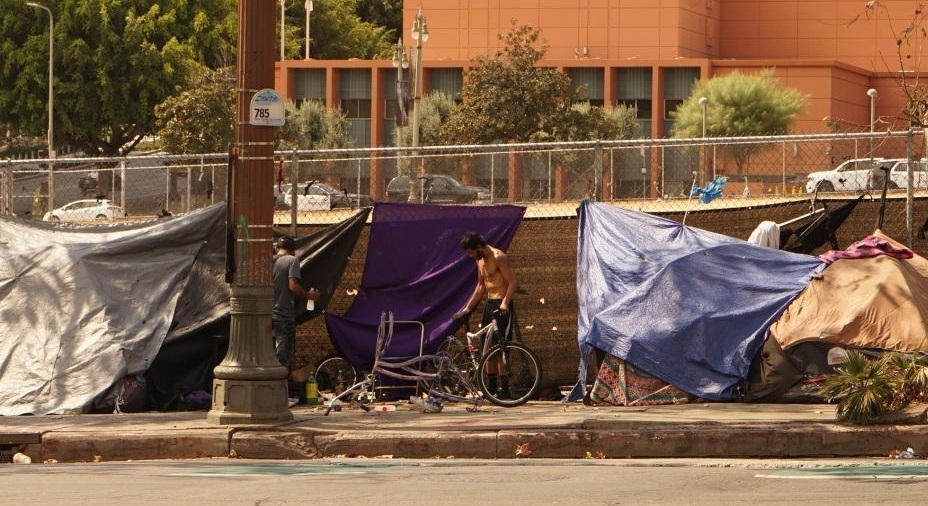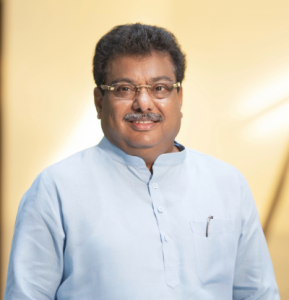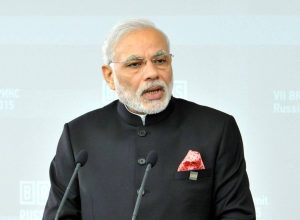The cavernous gap between rich and poor is likely to increase globally, the Oxfam report says, and that since 2020, the richest five men in the world have doubled their fortunes, writes Asad Mirza…reports Asian Lite News
Oxfam has released the upsetting details of the global rich-poor divide in a report — as the world’s richest people gathered in Davos, Switzerland — for the annual World Economic Forum meeting of political leaders, corporate executives and the super-rich.
The cavernous gap between rich and poor is likely to increase globally, the Oxfam report says, and that since 2020, the richest five men in the world have doubled their fortunes. During the same period, almost five billion people globally have become poorer. Hardship and hunger are a daily reality for many people worldwide. At current rates, it will take 230 years to end poverty, but we could have our first trillionaire in 10 years.
Oxfam report
Citing huge concentration of global corporate and monopoly power contributing to exacerbating inequality economy-wide, the report says that seven out of ten of the world’s biggest corporates have either a billionaire CEO or a billionaire as their principal shareholder.
Through squeezing workers, dodging tax, privatising the state and spurring climate breakdown, global corporations are driving inequality and acting in the service of delivering ever-greater wealth to their rich owners. To end extreme inequality, governments must radically redistribute the power of billionaires and corporations back to ordinary people, the report urges.
For years, Oxfam has raised alarm about widening and extreme inequality. As we enter 2024, the very real danger is that these extraordinary extremes are becoming the new normal. Corporate and monopoly power is an unrelenting inequality-generating machine.
For most people around the world, the start of this decade has been incredibly hard. For the poorest people, who are more likely to be women, racialised peoples, and marginalised groups in every society, daily life has become more brutal still. Global inequality — the gap between Global North and the Global South — has grown for the first time in 25 years. In addition, climate breakdown, driven by the super-rich, is dramatically increasing global inequality.
Governments are finding it impossible to stay financially afloat in the face of mounting debt and the escalating costs of importing fuel, food and medicines. Low- and lower-middle-income countries are set to pay nearly half a billion US dollars a day in interest and debt payments between now and 2029, and they are having to make severe cuts to spending to be able to pay their creditors.

Rich becoming richer
Meanwhile, the dramatic increase in extreme wealth witnessed since 2020 has become set in stone. Billionaires are now US$3.3 trillion or 34 per cent richer than they were at the beginning of this decade of crisis, with their wealth growing three times as fast as the rate of inflation.
This wealth is concentrated in the Global North. Only 21 per cent of humanity lives in the countries of the Global North, but these countries are home to 69 per cent of private wealth, and 74 per cent of the world’s billionaire wealth.
The other big winners in this period of crisis are global corporations. For huge corporations, just as for super-rich individuals, the last two decades have been extraordinarily lucrative and the last few years have been better still: the biggest firms experienced an 89 per cent leap in profits in 2021 and 2022.
The new data shows that 2023 is set to shatter all records as the most profitable yet.
An era of monopoly
The report uses new data to demonstrate that the richest people are not only the biggest beneficiaries of the global economy but exercise significant control over it too.
New research by Oxfam illuminates just how much of the world’s financial assets, are owned by the top 1 per cent. Using data from Wealth X, report says that the richest 1 per cent own 43 per cent of all global financial assets. In the Middle East, the richest 1 per cent holds 48 per cent of financial wealth; in Asia, the richest 1 per cent own 50 per cent of wealth; and in Europe, the richest 1 per cent own 47 per cent of wealth.
It further asserts that we are living through an era of monopoly power that enables corporations to control markets, set the terms of exchange, and profit without fear of losing business. The report says that far from being accidental, this power has been handed to monopolies by our governments.
Workers over looked
Basically, global corporations drive inequality by using their power to force wages down and direct profits to the ultra-wealthy. Oxfam’s analysis finds that 791 million workers have seen their wages fail to keep up with inflation and as a result have lost US$1.5 trillion over the last two years. Women are vastly overrepresented in the poorest-paid and least
Around the world, corporate power is relentlessly pushing into the public sector, commodifying and segregating access to vital services such as education, water and healthcare, while enjoying massive, taxpayer-backed profits. This can gut governments’ ability to deliver the type of high-quality, universal public services that can reduce inequality.

The remedy
The report besides bringing out the glaring inequality globally, also offers remedial steps to ease the balance of wealth.
Firstly, it says that the corporate power should be reigned-in. It could be done by building a strong and effective state, which is the best bulwark against corporate power.
The report urges the governments to take a proactive role in shaping their economies for the common good. State must guarantee inequality-busting public services including healthcare, education, care services and food security, by investing in public transport, energy, housing, and other public infrastructure.
Secondly, the governments need to use their power to rein in the runaway power of corporates and prevent injustices across their supply chains, nationally and internationally. They must also stop the monopoly over knowledge by democratising trade and ending the abuse of patent rules that drive inequality.
Further, the corporations must pay living wages and commit to ensure climate and gender justice: dividend payments and buybacks should be banned until this is guaranteed. Trade unions must be supported, protected and encouraged. CEO’s pay should be capped, besides a permanent wealth tax and a permanent excess profit tax.
Thirdly, the governments can use their power to reinvent and repurpose the private sector. They can also use tax and other economic instruments such as public procurement to prioritise equitable business models. No economic aid or government contracts should be given to companies that are missing their net zero targets, paying below living wages, or dodging taxes.
Thus, a more equal world is possible, if the governments effectively regulate and reimagine the private sector.
However, in just last three years, we have experienced a global pandemic, wars, a cost-of-living crisis and climate breakdown. Each crisis has widened the gulf, not so much between the rich and people living in poverty, but between an oligarchic few and the vast majority.
But in reality we are also not confident that the remedial measures suggested by Oxfam will ever see the light of the day, in view of the immense power enjoyed by the oligarchs.
(Asad Mirza is a Delhi-based senior political and international affairs commentator)
ALSO READ: West in a fix as China Tightens Grip on Myanmar Affairs


